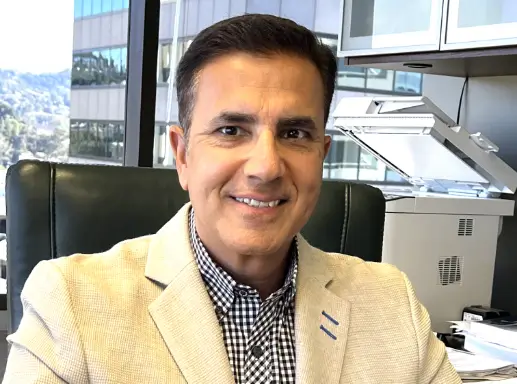Los Angeles Bankruptcy Lawyers
Thousands of individuals and families in Los Angeles, Southern California and statewide have found effective debt relief with the help of the Los Angeles bankruptcy lawyers at Wadhwani & Shanfeld. If you’ve been struggling to get by because of overwhelming credit card debt, unaffordable mortgage payments, personal loans, student loans, medical bills, or tax debt, Wadhwani & Shanfeld has the help you need for real, fast, and effective debt relief. No matter what troubles you are facing, we’ve helped people in your same situation find financial freedom through solutions both inside and outside the bankruptcy process. Contact our experienced Los Angeles bankruptcy lawyers right now and start getting the help you need right away.
Why Wadhwani & Shanfeld?
Clients choose Wadhwani & Shanfeld because of our deep legal knowledge, personalized attention, and proven success. We are known for:
- Board-Certified Specialists in Bankruptcy Law
- Decades of experience completing thousands of cases with great success and client satisfaction
- Personalized case strategies designed for each client’s financial goals
- Quick response to your urgent need for help
- The ability to handle cases remotely for convenience and privacy
- Warm and welcoming offices conveniently located throughout Los Angeles and Southern California
- Transparent communication and compassionate legal support from start to finish
From the first consultation, clients speak directly with an attorney who explains their options in clear, understandable terms. We believe in making the process as stress-free as possible and ensuring clients feel supported every step of the way.
Bankruptcy Solutions to Crushing Debt and Financial Stress
Throughout the history of our country, bankruptcy law has provided individuals and families with a safety valve to keep them from financial ruin when they’ve gotten in over their heads with debt. That safety valve is U.S. bankruptcy law, and it’s nothing to be ashamed of. It’s even written in the Constitution! Bankruptcy is a real, effective solution to overwhelming debt, and you are well within your rights to take advantage of the protections that bankruptcy offers.
Bankruptcy is a legal process designed to give people a fresh start by eliminating or restructuring their debt under the protection of federal law. For many, filing for bankruptcy is not a sign of failure, it is a practical financial decision that allows them to stop creditor harassment, prevent foreclosure, and rebuild their lives. Los Angeles bankruptcy attorneys at Wadhwani & Shanfeld guide clients through every stage of the process, ensuring all requirements are met and every opportunity for relief is explored.
There are two primary types of personal bankruptcy: Chapter 7 and Chapter 13. Both offer powerful tools to stop collections, protect assets, and discharge eligible debts, but they serve different needs.
Chapter 7 Bankruptcy
Chapter 7 bankruptcy, often called “liquidation bankruptcy,” allows individuals to discharge unsecured debts such as credit card balances, medical bills, personal loans, and certain tax obligations. Most people who file under Chapter 7 do not lose any property because California’s exemption laws are designed to protect essentials such as homes, vehicles, and retirement savings.
This option is ideal for those who:
- Have limited income and cannot keep up with monthly debt payments
- Are facing constant collection calls or lawsuits from creditors
- Need to eliminate large amounts of unsecured debt quickly
Once filed, the automatic stay goes into effect, which stops wage garnishments, repossessions, foreclosures, and all contact from creditors. Within a few months, most eligible debts are wiped out, giving clients a true financial reset.
Chapter 13 Bankruptcy
Chapter 13 bankruptcy is designed for individuals who have a steady income but are struggling to manage secured debts like mortgages, car loans, or tax payments. Instead of eliminating debts immediately, Chapter 13 allows clients to reorganize them into a manageable repayment plan that typically lasts three to five years. During this time, foreclosure proceedings stop, and clients can keep their property while catching up on overdue payments. Chapter 13 can also allow you to pay back certain liabilities which are not dischargeable in Chapter 7, such as priority taxes, support obligations or other non-dischargeable obligations.
This approach works best for those who:
- Are behind on mortgage or car payments but want to avoid foreclosure or repossession
- Need time to pay off debts without losing valuable assets
- Have tax or support obligations that cannot be discharged through Chapter 7
With a carefully structured repayment plan, Chapter 13 helps clients regain balance and financial control while protecting what they have worked hard to build.
Have You Been Sued or Had Your Account Sent to Collections? It’s Not Too Late to Get Help!
Just because you have been sued by a creditor law firm, this is not a reason to give up or despair. Far from it. Now is the time to act by calling a well-respected bankruptcy law firm like Wadhwani & Shanfeld. We’ll file a bankruptcy petition that imposes an automatic stay on any collections or legal proceedings, including lawsuits and foreclosures. We move swiftly and take action to protect you and get results.
If you are being sued by Hunt & Henriques, Reese Law Group, Patenaude & Felix, or any of the other major law firms that represent creditors in Southern California, call Wadhwani & Shanfeld for practical, strategic advice and immediate assistance responding to the lawsuit and dealing with it in an effective, proactive manner.
Additional Debt Relief Services
Bankruptcy is not always the only or best option. Wadhwani & Shanfeld also provide alternative debt solutions that help clients avoid court while still resolving financial challenges. These services include:
- Debt settlement and negotiation with creditors to reduce balances owed
- Loan modification to make mortgage payments more affordable
- IRS tax debt representation to stop levies and create repayment plans
- Lawsuit and judgment defense to protect income and property
- Credit restoration and rebuilding strategies after discharge
The firm also assists with small business bankruptcy, student loan debt management, and second mortgage settlements. Their comprehensive approach ensures that every financial issue is handled under one coordinated legal strategy.
Protecting What Matters Most
For most people, the fear of losing their home, car, or income prevents them from seeking help. Wadhwani & Shanfeld’s bankruptcy attorneys understand these fears and work aggressively to protect clients’ assets and rights. Filing for bankruptcy immediately stops foreclosure, repossession, and wage garnishment. The automatic stay gives clients the breathing room they need to make sound financial decisions without constant pressure from creditors.
California’s exemption laws protect many assets from liquidation, including homes with equity, vehicles, household goods, and retirement accounts. The LA bankruptcy lawyers at Wadhwani & Shanfeld carefully review each client’s financial situation to determine the best exemption strategy available under state and federal law.
Life After Bankruptcy
Bankruptcy is not the end of your financial life, it is a legal tool to start over. After discharge, clients can begin rebuilding credit immediately by following a structured plan that includes responsible credit use, consistent bill payments, and proper budgeting. Wadhwani & Shanfeld provide guidance and resources for rebuilding credit scores and establishing a solid financial foundation for the future. Many clients are surprised by how quickly they can qualify for new credit or even a home loan after completing the process.
Los Angeles Bankruptcy FAQs
Will my credit tank after filing for bankruptcy?
Answer: Yes. The exact size of the drop will depend on your credit history. Most people who file for bankruptcy have multiple accounts in collection, have defaulted on debts, and have high credit utilization. Their scores are already in the 400s. But others have managed to stay on top of debts (with difficulty) and have a score in the 700s. You can expect your score to crash more than 300+ points with a bankruptcy. But it’s possible to rebuild credit.
How long does a bankruptcy stay on my credit report?
Answer: It depends on the bankruptcy. A chapter 7 stays on for 10 years; a Chapter 13 stays on for 7 years. The negative effect lessens with time, however.
What debt can I get rid of in bankruptcy?
Answer: Bankruptcy doesn’t eliminate everything. For example, some debts are excluded by the bankruptcy code, such as family law obligations (child support and alimony). Other debts excluded include drunk driving tickets or a court judgment based on drunk driving. However, you can eliminate many types of unsecured debts, like medical debts, personal loans, and credit cards.
Can I eliminate my mortgage payment?
Answer: You can eliminate your mortgage debt in a Chapter 7. However, the security interest in the property survives, which means your lender can still foreclose if you stop paying.
Will I lose my home if I file for bankruptcy?
Answer: It depends. You might lose your house if you file for Chapter 7 and there is equity in the home that you can’t exempt. In that case, the trustee might force a sale and distribute equity to your creditors. You can avoid a sale by filing for Chapter 13.
If you can exempt the equity, then it’s a question of whether you are current on your mortgage. If not, then the lender can foreclose on the property. However, you might catch up or file for Chapter 13 which gives you more time to pay back unpaid mortgage debt.
Can I have a paralegal or a notary file bankruptcy for me?
Answer: They can certainly help you fill out the forms. You provide the information, and they can type it in. But they can’t provide legal advice, and they aren’t up to date on bankruptcy law.
Serving All of Los Angeles and Southern California
Wadhwani & Shanfeld proudly serves clients across Los Angeles County and beyond:
- Los Angeles
- Lancaster
- Long Beach
- Ontario
- Palmdale
- Rancho Cucamonga
- Sherman Oaks
- Torrance
- Van Nuys
- Coachella Valley
- Compton
- Inglewood
- Lakewood
- Riverside
- Santa Clarita
- Upland
Get Help From a Skilled Los Angeles Bankruptcy Attorney, Call Now
Solutions are available for the financial stress you are dealing with, so don’t spend another sleepless night in worry. Call Wadhwani & Shanfeld now for a complimentary consultation to get the information you need, including instant, immediate help. We don’t waste your time pushing you to schedule an appointment or in-office consult; you can call now and get an attorney on the phone right away. If you do wish to visit one of our many Southern California office locations, we welcome you, but we are equally comfortable handling your entire case through telephone, email, online chat, and other remote, electronic means. Call now to speak to an experienced Los Angeles bankruptcy lawyer and get started today getting the help you need.





